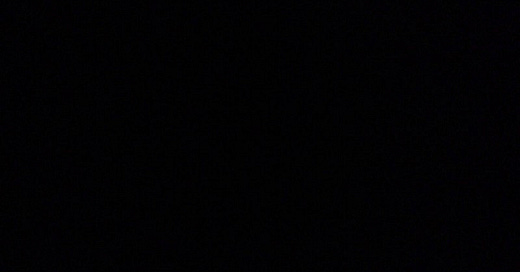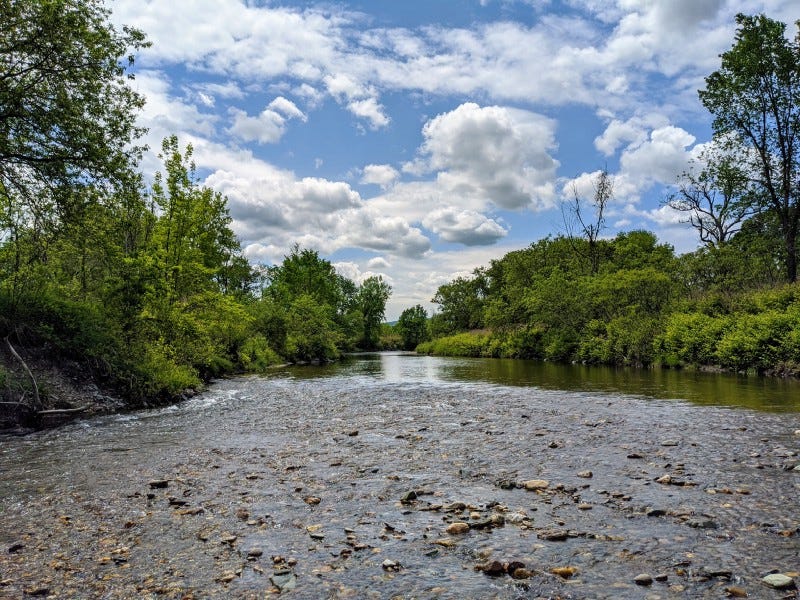6/11/2020 — Acton, Massachusetts
I want to tell you about last week, when I drove northwest from Acton, Massachusetts to Moretown, Vermont; which I had hoped would be a cute little Less Town but turned out to be No Town, Vermont.
I want to tell you about staying at a hippie mom’s house in Bristol, Vermont while I played with her two adorable boys as she explained her passion for… wait for it, masonry. “I really like to work rock,” she explained. “I like to build.”
I looked across fire pit flames that reflected cranberry and marigold against her shoulders, biceps, tough hands. She wasn’t kidding.
The next morning one of her boys discovered a lady’s slipper growing high on the eastern cliffs overlooking town. We marveled about the orchid as if it was a lost novel written by a reclusive author we were lucky to discover and read.
I’ve got a lot to learn from a part-time mason and her children.
There’s more to say about my search for home in New England, but today, this week, this moment, this writer, you reader — it’s not time for that.
There’s a bigger story we need to share. It’s the story.
Black Lives Matter
This is an argument for why Black Lives Matter is essential for white people to understand. Not controversial, vital. If you agree, we’re good. Wait ‘til next week when I write an essay about keening for an imaginary home. It’ll be called Pilgrim.
But if you’re white, like me, redundantly privileged, like me, well educated regardless of intention, like me; if you grew up in a profoundly segregated world and still live and will always live in that segregated world, as will your children and your nephews and nieces; if you know in your bones that you’re not racist and you’ve also never faced racism but in fact have profited from it since day one; if you can’t quite get yourself to shout Black Lives Matter every moment of every hour, or if you do post a sign on your front lawn and tsk over the news apps, but pause each time you say the phrase because maybe you’re white and shouldn’t be saying it, then this is for you.
Let’s walk through it. Won’t take long.
The Path
We first heard the term in 2013 in protest after George Zimmerman’s murder of Trayvon Martin, an innocent 17-year-old in Florida, a still growing child. Three black women in Oakland popularized the phrase on social media.
Terrifyingly, unsurprisingly, a year later the words gained currency and urgency with the police slaying of Michael Brown, an 18-year-old in Ferguson, Missouri. The police left his body on the street for hours.
Months later, the term rang in the ears of eighteen million metro New Yorkers — the news media capital of the world — when a policeman choked the life out of Eric Garner, age 44, in Staten Island. See the pattern in ages here? In locations? In avocation? Nope. Me neither.
The racist language of “color,” as if people are indelibly dyed, is the only dynamic, of course. All murder is equally condemned, but clearly color, this imaginary, colonial, imperial division among people where there is one right color up top, and every incorrect hue beneath, is the factor. It is what Professor Angela Davis lectured me and my classmates about at the University of California, Santa Cruz in 1995. She told us color was false. It was made up by people to justify slavery and segregation and discrimination. There is no color. Ethnicity? Yes. Peoplehood? Absolutely. Race? No.
It is that construct, that make believe division, where the divider profits and the divided are murdered, that Black Lives Matter talks about. But the brilliance of Black Lives Matter is it doesn’t say White Lives Murder, which is inarguable, or Stop Fucking Killing Us.
It says there’s this construct: Blackness. It has transcended a meaning forged by slave traders and bigots, by men who willingly carved up other men for profit, it now holds profound significance. It means home and culture and identity and community and history, but those are the origins. Black only exists with White. White depends on Black.
In other words, we are all in this together. We need each other for our definition, for our identity, but, and here’s the point of the movement, it’s not a two-way street. It’s been a long, long, long one-way street paved by oppression.
And it shouldn’t be, because Black Lives Matter Too. The adverb shouldn’t be necessary, but for some it may be helpful.
Are you with me? Black and white are a thing. We’re together. We’re bound to each other. We are each other.
Let’s talk about the second word. Life is holy. Ending it must be more than horrifying and unimaginable, it must have profound consequences, but for so many police officers and criminals (whom some in the media disturbingly call vigilantes) it’s, shrug, no big deal. If it’s a black man or woman whose body is left dead on the ground, that’s business as usual. Been happening since 1619 when colonizers wrested the first African body to these shores. It’s yawn, boring to go through the motions, now not at a slave market, but behind closed doors in a grand jury or in a lawyer’s office or in a Justice Department hallway: Defend the violence, Acquit the criminal, Keep killing.
Some of our more liberal friends will say, it’s terrible! Let’s reform things! We need more sensitivity training! How about little cameras? Why not make certain positions illegal?
Show me an instance of where reform has worked, anywhere. The moral trajectory is as simple as it is devastating. The cycle of racist violence never ends because the cycle of consequence never begins.
Now let’s talk about Matter.
“The sword comes into the world, because of justice delayed and justice denied.” Talmud, Pirkei Avot.
“Justice too long delayed is justice denied.” — Martin Luther King, 1963.
What do you call it when justice is denied?
You call it tyranny. What is the United States of America? A country formed in revolt against a tyrant who thought of us as his subjects for his bidding. But the tyrant has also always been within. A million tyrants captured by a tyrannic idea: that money is more than man, so men can be thought of as chattel instead of what they are, which is holy. Servitude surely led to slavery. That’s the rabbit hole we go down when we object to freedom.
People, not money, is what has the ultimate meaning. Life, not trade, is what matters, and isn’t that why we have trade in the first place, to make life better?
Imagine a world where all people enjoy commerce. All people lap up profit and contentment and happiness. People matter. Life matters. Black life too, which shouldn’t ever need an adverb. Black lives should also enjoy the harvest.
What do you call that? That sense of equal striving for, and sharing of, bounty? It’s the antithesis of tyranny. It’s democracy. It’s freedom. In other words, America.
Let’s bring it home.
The movement’s three words are as clear to me as the Vermont river water I witnessed last week. The trisyllabic repetition struck me seven years ago, and this morning, and every day in between, as it will every day going forward, as irrefutable and also, terribly sad. Of course Black Lives Matter. Shouldn’t it go without saying? Who is it that needs reminding?
It’s a fierce declarative statement when shouted at full volume in the streets. It’s also plaintive when plainly spoken. It’s affirmation and lamentation. This echoes the Jewish High Holiday prayer, unetanah tokef, that describes the criticality of God’s judging our actions. The prayer says judgement starts as a rousing roaring shout! and ends in a hush whisper.
THE GREAT SHOFAR IS SOUNDED!
A still small voice is heard.
Listen to both cadences to lodge the meaning deep.
Here’s my coda. The fact that Black Lives Matter is uttered at all, the fact that these words encapsulate and motivate a movement from Melbourne to Minneapolis to Manhattan to Munich, is all the proof and validation one should need that yes, Black Lives Matter.
Because if it must be said, that means only one thing. People aren’t listening. And if we haven’t been listening, that means we’ve been acting all along, for the entirely of American history, as if Black lives don’t matter.
If you refute this formula, if you think it’s not important to repeat, again and again and again, that Black Lives Matter, if you are tempted to say what about other groups? what about the police? what about me, don’t I matter? then you have succumbed to the tyrant idea of racism because you are using privilege to avoid the point.
If you think there is an other, you’re not seeing our together. If you don’t celebrate the vital specialness of life, if you don’t grasp the inner truth of meaning, if you can’t see or celebrate or grasp, then you aren’t really living, you are dreaming, you are hazy. You aren’t really here.
Are you with me? I hope so. I shouldn’t end this on a low note or on a criticism, that’s bad manners, and besides, I love you. I respect you. I want us to feel good so we will work better together, shoulder to sweaty shoulder, as we heft the heavy rocks my mason friend loves so much, as we rebuild the foundation of a country that first stood on racism, as we reassemble the huge lower blocks to eventually make space for the finely-wrought work of a city shining on a hill, a beacon bursting bright.
Black Lives Matter. It’s not that we have to say it. We need to say it. We must say it. These three words are the basis of what we must build. All together now. 1. 2. 3. Lift.






